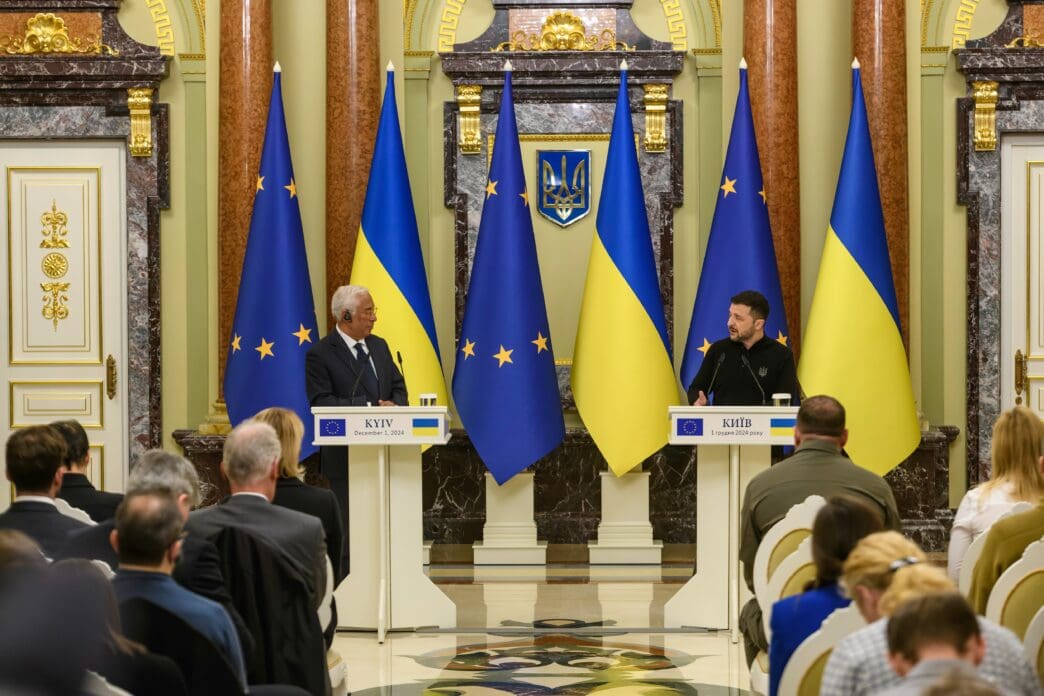Executive Summary
The Story So Far
Why This Matters
Who Thinks What?
Senior European Union officials have delivered a firm message to Kyiv regarding its bid for EU membership, emphasizing that significant reforms are still required while efforts are made to overcome Hungary’s opposition to Ukrainian accession. The discussions highlight the complex political and legal hurdles Ukraine faces, despite widespread public support for joining the bloc.
EU Membership Hurdles
Ukraine requires unanimous backing from all 27 EU member states to progress with its membership application. Hungary, however, is currently blocking the next stage of accession negotiations, citing concerns over the language rights of its ethnic minority in Ukraine.
In response, EU Enlargement Commissioner Marta Kos led a diplomatic initiative in Ukraine last week, engaging with the Hungarian minority in the country’s west to alleviate tensions. This effort underscores the EU’s commitment to facilitating Ukraine’s path while navigating internal disagreements.
Rule of Law and Reform Demands
For many Ukrainians, EU membership symbolizes hope for a prosperous future and deeper integration with Western democracies, particularly in the wake of Russia’s ongoing war. Despite this aspiration, Kyiv’s recent attempt to curb the independence of key watchdog bodies raised alarms among European governments.
Commissioner Kos emphasized that the EU “cannot accept a new member state which is really not 100 percent following the rule of law.” She described the EU’s strict approach to reforms, from agriculture to environmental standards, as a form of “tough love,” indicating that the most challenging work lies ahead.
The incident on July 22, involving increased control by the prosecutor general over Ukraine’s anti-corruption bureau, was swiftly reversed following wartime protests. However, it served as a stark reminder to Kyiv’s partners about the critical importance of upholding the rule of law.
Kos warned that such actions risk eroding trust from EU member countries, stressing that all related issues must be corrected. Ukraine’s Deputy Prime Minister for European Integration, Taras Kachka, affirmed the country’s commitment to implementing reforms in line with its international obligations.
Navigating Hungarian Opposition
European officials have indicated a willingness to find ways to circumvent Hungarian Prime Minister Viktor Orban’s opposition if Ukraine maintains its reform trajectory and adheres to rule-of-law norms. Danish Prime Minister Mette Frederiksen, whose country holds the rotating EU presidency, stated that Ukraine and the EU would continue technical work on reforms.
“I will not allow one country, and I will certainly not allow Viktor Orban, to take decisions upon the entire European future,” Frederiksen said, signaling a strong resolve among other EU leaders. While Orban did not veto the decision to open accession negotiations in 2023, Hungary is now blocking the subsequent stage of negotiations on thematic policy areas, known as “clusters.”
One potential solution discussed is opening these clusters without requiring unanimous consent, though this would necessitate a change in EU rules, which also requires unanimity. Consequently, continuing technical work with Ukraine without formally opening the clusters remains the more probable short-term option.
Long-Term Prospects and Public Opinion
European Commission President Ursula von der Leyen previously suggested Ukraine could join the bloc before 2030, provided reforms continue at their current pace. However, some officials view this timeline with skepticism, acknowledging the arduous and lengthy nature of the accession process, especially for a large and strategically important country like Ukraine.
Beyond Hungary, broader public opinion within the EU presents another long-term challenge. A Eurobarometer poll from September revealed that 52% of EU citizens support Ukraine’s accession if it meets all conditions, while 41% are opposed. Support varies significantly across member states, with 91% of Swedes in favor but only 28% in the Czech Republic.
Commissioner Kos believes the EU has time to address these concerns through dialogue and explanation, aiming to build broader consensus for Ukraine’s eventual membership.








